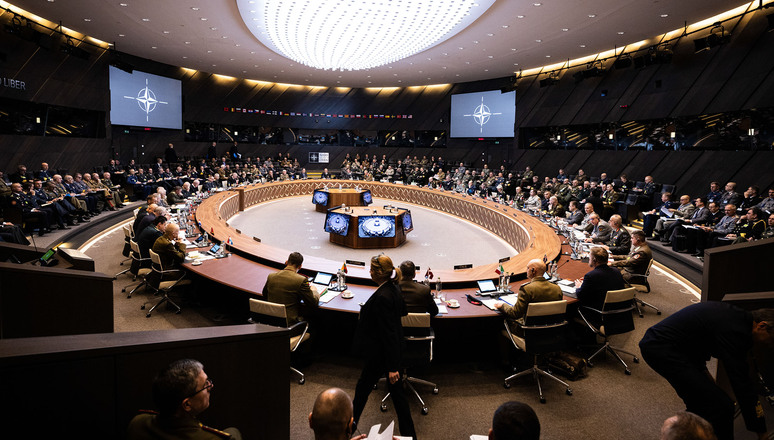On 15-16 January 2025, the NATO Military Committee in Chiefs of Defence Session took place at NATO Headquarters in Brussels. 32 Allied Chiefs of Defence together with their military counterparts from 27 Partners discussed NATO's vigilance & deterrence, strengthening military partnerships, and continued support to Ukraine. The two-day session was finalised by the NATO-Ukraine Council with the Ukrainian Chief of Defence.

Opening the NATO Military Committee session alongside NATO Secretary General Mark Rutte, the Chair of the Military Committee Admiral Rob Bauer stressed that the priorities of the NATO Military Authorities are to, 'strengthen the deterrence and defence of the Alliance and at the same time support Ukraine in its resistance against Russia's unprovoked aggression'. The Chair emphasised that Allies must be better prepared for the future by ensuring that the conditions are in place to have the readiness required to implement NATO's new defence plans.
The first session saw General Cavoli, Supreme Allied Commander Europe - SACEUR, brief on NATO's readiness and the status of NATO's operations, missions, and support to Ukraine through the NATO Security Assistance and Training for Ukraine (NSATU).
This was followed by the Chiefs of Defence meeting with Admiral Pierre Vandier, Supreme Allied Commander Transformation- SACT. Admiral Vandier briefed the Chiefs of Defence on NATO'S Warfighting Transformation, the Defence Planning Process and the status of the NATO-Ukraine Joint Analysis, Training, and Education Centre (JATEC).
Over the course of the Meeting, the Chiefs of Defence met with 27 NATO Partners to discuss military cooperation, interoperability and information sharing. Represented were: Algeria, Armenia, Australia, Austria, Azerbaijan, Bosnia and Herzegovina, Colombia, Egypt, Georgia, Iraq, Ireland, Israel, Japan, Jordan, Kazakhstan, Malta, Moldova, Mongolia, Morocco, New Zealand, Qatar, Republic of Korea, Serbia, Switzerland, Tunisia, Ukraine and the European Union.
The discussion focused on how NATO can support Partners in an era of pervasive global instability, cross-regional security challenges and opportunities for cooperation. Special sessions were held with NATO's Operational Partners (Armenia, Austria, Bosnia and Herzegovina, Georgia, Ireland, Ukraine, Moldova, Switzerland, Jordan, Australia, New Zealand) and Partners in the Indo-Pacific (Australia, New Zealand, Japan and the Republic of Korea).
The final session saw NATO Chiefs of Defence virtually meeting with the Chief of Defence of Ukraine, Oleksandr Syrskyi. Allies reinforced their strong and continued support to Ukraine. Admiral Bauer emphasised that, 'it is in the political and military interest of the Alliance to support Ukraine not only now, but also in the future.'






